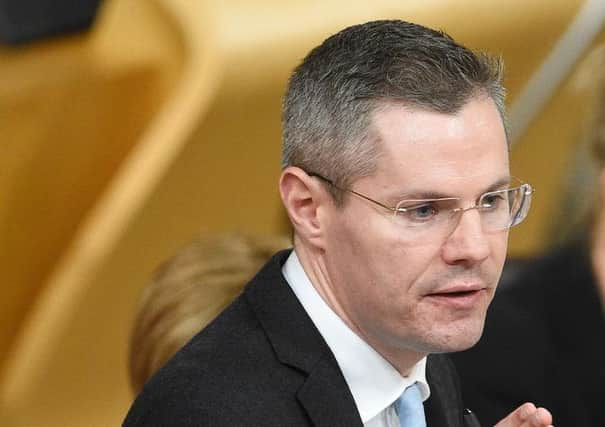Scottish Government must be cautious on debt as no-deal Brexit looms – leader comment


The news that the Scottish Government is facing a £1 billion spending black hole over the next three years is alarming, particularly given the growing prospect of a no-deal Brexit. After a decade of austerity, Scotland could be facing years more to come as balancing the books may require one of three options – higher taxes, cuts in spending or increased borrowing.
Increasing taxes might seem like the politically sensible course for the SNP, who have been coming under attack from all sides over the state of public services like the NHS and education. However, the danger of higher taxation is that economic growth – already lacklustre at best – is damaged. According to the Scottish Fiscal Commission, growth is expected to be just 0.8 per cent this year – down 0.4 per cent on its previous estimate – and 0.9 per cent next year.
Advertisement
Hide AdAdvertisement
Hide AdOne of the best ways to increase the income tax take is to enact policies to boost the economy, create more jobs and, therefore, more taxpayers. However, this is obviously a much more difficult task than simply increasing the percentage the Government takes out of our wages and even a successful growth strategy will take time to produce results.
The second option – of cuts to public services – is also problematic. If the Government reduces its spending, this can have negative consequences for the economy as a whole. And public anger over everything from GP waiting lists to unfixed potholes is such that the politicians who end up being blamed for any further pain could pay a heavy price.
Finance Secretary Derek Mackay said yesterday that it was “wrong to conclude that there are cuts to the Scottish budget when we have other economic levers”, suggesting he is considering the third option. Neither a lender nor a borrower be is a saying that is at odds with modern capitalism – most of us borrow money for all sorts of reasons – to buy a house, a car or even a fridge.
But we are also aware that getting into too much debt can lead to catastrophe and the same is true for countries. How much debt is too much depends largely on the state of the economy – and not just the Scottish economy, but the global one as we all should have learned in 2008.
Some experts have warned a no-deal Brexit could be as bad the financial crash of that year so now may be a bad time to be getting into debt. Mackay and co face tough choices and better be careful.
